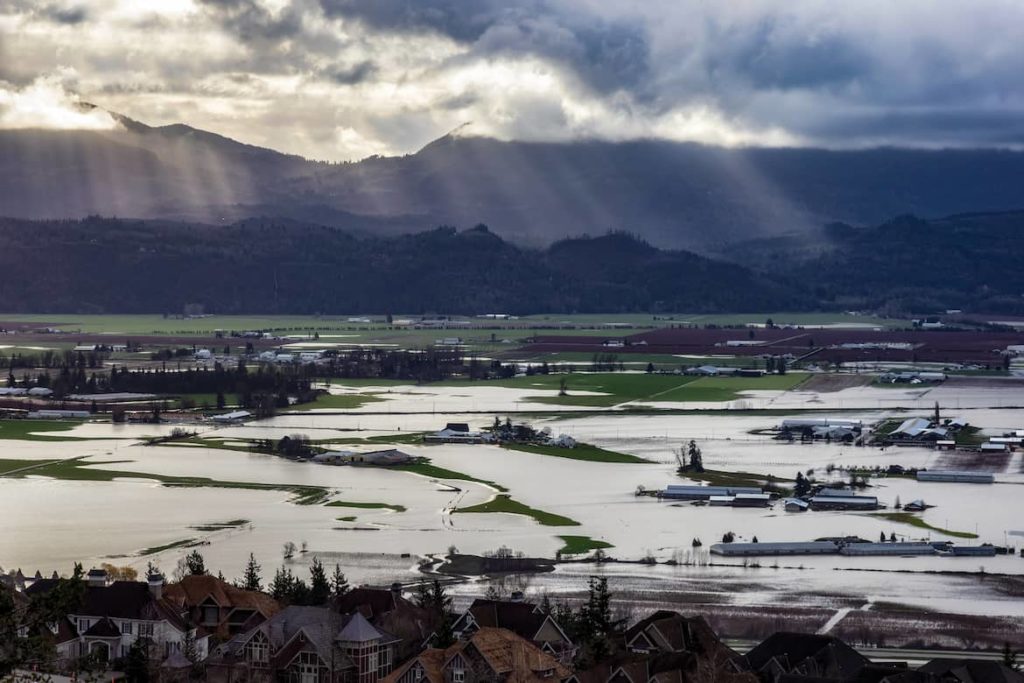
Looking out towards the tall trees visible from her office, UBC Forestry professor Dr. Lori Daniels reflects on the environmental firestorm that her children, she and other people from her generation could face.
“We are experiencing the effects of climate change that I used to think would mostly land on the shoulders of future generations; but, all indicators show it will have severe impacts even within the lifetime of Baby Boomers,” says Dr. Daniels.
The past five years saw BC’s worst wildfire seasons to date in 2017, 2018 and 2021. The most recent came with the record-breaking heat dome that scorched the landscape, hollowing out rivers and streams and baking forests tinder dry. Over 850,000 hectares burned, prompting a state of emergency in BC from July 21 to September 14, 2021, that resulted in widespread evacuations and property loss.
Just as the fires settled, the atmospheric rivers of mid-November to early December 2021 flooded hundreds of homes and businesses across Southern BC, and triggered mudslides, rockslides and pounding high water that washed out stretches of highway, railroads and bridges.
While businesses and homes can rebuild – often at a significant cost – and many damaged forests and wildlife habitats will recover, a shifting climate is leaving its mark.
“We know that forests are resilient to a fairly wide range of environmental variation,” says Dr. Daniels, who studies the effects of fire on forest ecosystem health. “Many of our tree species are adapted to diverse weather and climate-related disturbances like fire, wind and insect outbreaks. But historical and evolutionary boundaries are being pushed.”
A February 28, 2022 release by the Intergovernmental Panel on Climate Change entitled “Climate Change: A Threat to Human Wellbeing and Health of the Planet” projected that the earth’s average temperature will increase by about 1.5 degrees Celsius within the next two decades. The leading international body for climate change-related research and knowledge-sharing points a finger squarely at human activity for the increasing number of heatwaves, droughts and floods, as well as mass species mortality. Forests and the forestry profession have an important role to play to stem the tide of climate change. From carbon sequestration in soils and trees to cooling communities with urban canopies, implementing selective logging practices and connecting the dots between forest vegetation and salmon survival rates, the diverse pursuits within the profession are part of the global vision for a sustainable future.
Please visit the Faculty of Forestry’s Branchlines magazine to read the full article, which has a focus on ‘future-proofing’ and new approaches and technology that can be leveraged for positive change.
Through Strategy 9: Knowledge Exchange, UBC is committed to improving the university ecosystem and supporting the translation of research into action.